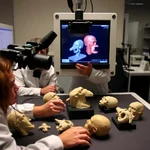The topic “Describe a sport you would like to learn” is a common theme in IELTS Speaking examinations. It has appeared frequently in past tests and is likely to remain relevant in future exams. This topic allows candidates to showcase their ability to express personal interests, goals, and aspirations while demonstrating their English language skills.
Part 1: Introduction and Interview
In this section, the examiner may ask general questions about sports and physical activities. Here’s an example question with a suggested answer:
Question: Do you play any sports regularly?
Sample answer (Band 7-8):
“Yes, I do. I’m quite passionate about staying active, so I make it a point to play badminton at least twice a week. It’s not only a great way to keep fit, but it also helps me unwind after a long day at work. I find the fast-paced nature of the sport both challenging and exhilarating.”
Describe a book you would recommend to others if you’re looking to improve your vocabulary and speaking skills for the IELTS exam.
Part 2: Long Turn
Cue Card
Describe a sport you would like to learn
You should say:
- What the sport is
- Why you want to learn it
- How you plan to learn it
- And explain how learning this sport might benefit you
Sample Answers
Band 6-7 Answer:
“The sport I’d like to learn is rock climbing. I’ve always been fascinated by it, especially after watching some documentaries about famous climbers. I want to learn it because it seems like a great way to challenge myself both physically and mentally.
To start learning, I plan to join a local climbing gym and take some beginner classes. They offer introductory courses where they teach you the basics of safety and technique. I think it’s important to start with proper guidance to avoid any risks.
Learning rock climbing could benefit me in several ways. Firstly, it would improve my physical fitness, especially my strength and flexibility. Secondly, it would help me overcome my fear of heights. Lastly, I believe it would teach me valuable skills like problem-solving and perseverance, which could be useful in other areas of my life.”
Band 8-9 Answer:
“The sport I’m eager to delve into is parkour, an urban acrobatic discipline that involves navigating through complex environments with speed and efficiency. I’m drawn to its unique blend of physical prowess and mental acuity, which sets it apart from conventional sports.
My motivation stems from a desire to push my physical boundaries and develop a new perspective on urban spaces. Parkour epitomizes the art of overcoming obstacles, both literal and metaphorical, which I find deeply appealing.
To embark on this journey, I’ve devised a comprehensive plan. I intend to start with online tutorials to grasp the fundamental techniques and safety protocols. Following this, I’ll enroll in a reputable parkour academy in my city, where I can receive hands-on instruction from experienced practitioners. Additionally, I plan to supplement my training with strength and flexibility exercises to build the necessary physical foundation.
The potential benefits of mastering parkour are multifaceted. Physically, it would enhance my agility, balance, and spatial awareness. Mentally, it would cultivate problem-solving skills and boost my confidence in tackling challenges. Moreover, parkour’s philosophy of finding efficient paths through obstacles could translate into a more adaptable and resourceful approach to life’s hurdles. Ultimately, I believe this sport would not only transform my physical capabilities but also reshape my mindset, fostering a more dynamic and resilient version of myself.”
 Parkour training in urban environment
Parkour training in urban environment
Follow-up Questions
- What are the main challenges you anticipate in learning this sport?
Band 6-7 Answer:
“I think the biggest challenges would be building up the necessary strength and overcoming my fear of heights. It might take some time to develop the muscles needed for climbing, and I’ll need to work on my mental strength to deal with being high up.”
Band 8-9 Answer:
“The primary hurdles I foresee are twofold. Firstly, cultivating the requisite physical attributes – particularly the upper body strength and explosive power essential for parkour – will demand rigorous and consistent training. Secondly, overcoming the psychological barriers associated with performing high-risk movements will be crucial. This involves recalibrating my perception of risk and developing unwavering focus and spatial awareness.”
- How do you think learning this sport might impact your daily life?
Band 6-7 Answer:
“Learning rock climbing would probably have a big impact on my daily life. I’d need to adjust my schedule to make time for training and maybe change my diet to support my new physical activities. It might also influence my social circle, as I’d likely meet new people who share this interest.”
Band 8-9 Answer:
“Immersing myself in parkour would undoubtedly precipitate a profound shift in my daily routine and overall lifestyle. It would necessitate a meticulous restructuring of my time management to accommodate regular training sessions. Moreover, it would likely catalyze a holistic approach to health and fitness, encompassing not just physical exercise but also nutrition and recovery practices. On a broader scale, I anticipate it would foster a more adventurous spirit and a heightened awareness of my surroundings, potentially transforming mundane urban landscapes into playgrounds of opportunity and challenge.”
Part 3: Two-way Discussion
Examiner: “Do you think extreme sports are becoming more popular these days?”
Band 6-7 Answer:
“Yes, I think extreme sports are definitely gaining popularity. We can see this in the increased coverage of these sports on TV and social media. More people seem to be looking for thrilling experiences and ways to challenge themselves. However, I think it’s important to remember that these sports can be dangerous if not practiced safely.”
Band 8-9 Answer:
“Indeed, there’s a discernible upward trend in the popularity of extreme sports. This surge can be attributed to several factors. Firstly, the proliferation of social media platforms has provided unprecedented exposure to these adrenaline-fueled activities, captivating a wider audience. Secondly, there’s a growing societal emphasis on unique experiences and personal challenges, which extreme sports cater to exceptionally well.
Moreover, advancements in safety equipment and training methodologies have made these sports more accessible to the average enthusiast. However, it’s crucial to strike a balance between promoting these exhilarating activities and maintaining a robust safety framework. The allure of extreme sports lies in their inherent risk, but it’s imperative that participants are adequately prepared and informed about the potential dangers.”
Describe a time when you tried a new sport can be a great way to practice for this type of question in the IELTS Speaking test.
Examiner: “What role do you think sports play in bringing different cultures together?”
Band 6-7 Answer:
“Sports play a significant role in bringing cultures together. International competitions like the Olympics or World Cup bring people from all over the world together. They give people a chance to learn about different cultures and find common ground through their shared love of sports. Sports can also help break down stereotypes and promote understanding between different groups.”
Band 8-9 Answer:
“Sports serve as a powerful catalyst for cultural integration and mutual understanding. They act as a universal language, transcending linguistic and cultural barriers, and fostering a sense of global community. International sporting events, such as the Olympics or the FIFA World Cup, function as microcosms of global society, showcasing the rich tapestry of human diversity while simultaneously highlighting our shared passions and values.
Moreover, sports diplomacy has proven to be an effective tool in ameliorating international relations. Historical examples, such as the ‘Ping Pong Diplomacy’ between the US and China in the 1970s, demonstrate how sports can pave the way for dialogue and cooperation between nations with otherwise strained relationships.
At a grassroots level, sports facilitate cultural exchange through international tournaments, exchange programs, and diverse team compositions. This exposure to different cultures fosters empathy and broadens perspectives, contributing to a more inclusive and tolerant global society. In essence, sports serve as a unifying force, celebrating our differences while emphasizing our common humanity.”
 International sports event with diverse athletes
International sports event with diverse athletes
Key Vocabulary and Phrases for High Scores
-
To delve into (phrasal verb) – /delv ˈɪntə/ – to research or examine something thoroughly
Example: “I’m excited to delve into the world of extreme sports.” -
Epitomize (verb) – /ɪˈpɪtəmaɪz/ – to be a perfect example of something
Example: “Parkour epitomizes the combination of physical skill and mental focus.” -
Multifaceted (adjective) – /ˌmʌltɪˈfæsɪtɪd/ – having many different aspects or features
Example: “The benefits of learning a new sport are multifaceted, affecting both body and mind.” -
To cultivate (verb) – /ˈkʌltɪveɪt/ – to develop or acquire a quality, sentiment, or skill
Example: “Learning parkour would help me cultivate problem-solving skills.” -
To precipitate (verb) – /prɪˈsɪpɪteɪt/ – to cause something to happen suddenly or unexpectedly
Example: “Taking up a new sport might precipitate significant changes in my lifestyle.”
Describe a time when you took on a new challenge can help you practice using these advanced vocabulary items in context.
Examiner’s Advice
To achieve a high score in the IELTS Speaking test, particularly when describing a sport you would like to learn:
-
Develop your ideas fully: Don’t just list points; explain them in detail and provide specific examples.
-
Use a range of vocabulary: Incorporate advanced and topic-specific vocabulary naturally into your responses.
-
Demonstrate complex grammar: Use a mix of simple and complex sentence structures to showcase your language proficiency.
-
Maintain fluency: Practice speaking on various topics to improve your ability to speak at length without unnatural pauses.
-
Show enthusiasm: Your tone and choice of words should convey genuine interest in the sport you’re describing.
-
Connect ideas logically: Ensure your response flows naturally from one point to the next.
-
Be prepared for follow-up questions: Think about related topics and be ready to discuss broader themes connected to sports and learning new skills.
Remember, consistent practice is key to improving your speaking skills. Consider recording yourself or practicing with a study partner to identify areas for improvement.
Describe a museum you visited can be another excellent topic to practice your speaking skills and expand your vocabulary in preparation for the IELTS exam.


